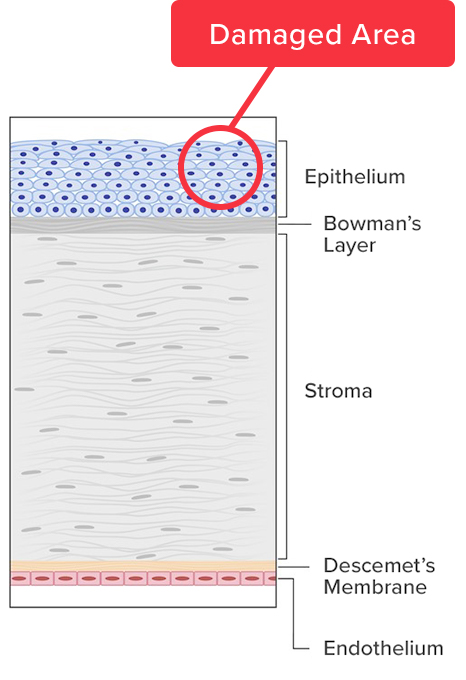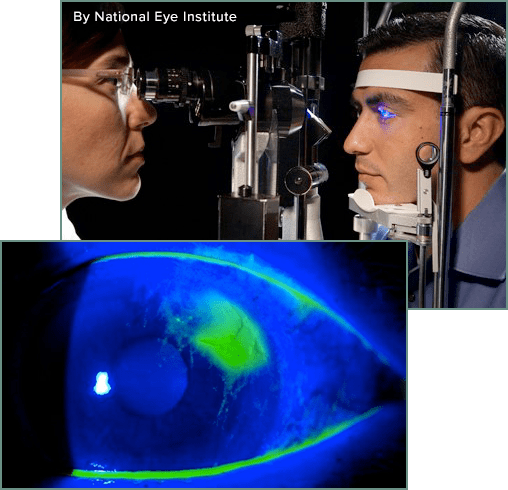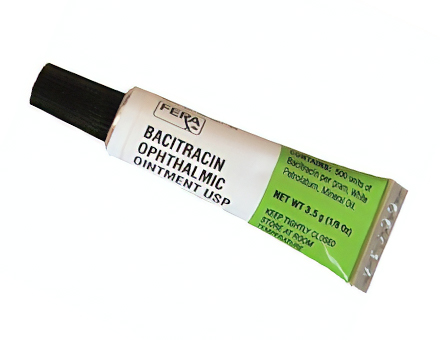What Is a Corneal Abrasion?
A corneal abrasion is when the outermost layer of the cornea, called the epithelium, is damaged or removed. This often occurs because of an injury or scratch to the eye.
What Causes a Corneal Abrasion?
Most commonly, a corneal abrasion is caused by trauma, such as an injury from a fingernail, tree branch or mascara brush. Injury can also occur from rubbing the eyes, contact lenses, or a foreign body like wood chips or metal shavings getting into the eye. Sometimes an abrasion may be caused by an eye diseases like dry eye, infections, and corneal dystrophies.
What Are the Signs and Symptoms of a Corneal Infection?

The cornea is one of the most sensitive areas of the body. A corneal abrasion is often very painful and gives the sensation that something is in the eye. The most common symptoms include:
- Pain
- Foreign Body Sensation
- Light Sensitivity
- Redness
- Decreased Vision
How Is a Corneal Abrasion Diagnosed?
 A corneal infection can be diagnosed by an eye doctor through examination. Usually, a drop of a yellow-green eye drop called fluorescein is instilled in the eye. This eyedrop will light up under blue light and identify an abrasion. This eye drop also includes a numbing medication that can provide immediate relief from some abrasions.
A corneal infection can be diagnosed by an eye doctor through examination. Usually, a drop of a yellow-green eye drop called fluorescein is instilled in the eye. This eyedrop will light up under blue light and identify an abrasion. This eye drop also includes a numbing medication that can provide immediate relief from some abrasions.
During the eye exam, your doctor may also find the reason for the abrasion such as a foreign body or other underlying eye condition.
How Is a Corneal Abrasion Treated?
 The cornea has the remarkable ability to heal many abrasions within 24-48 hours. The surface layer of the cornea or epithelium is constantly replacing itself and can grow rapidly to cover an injured area. The biggest risk with abrasion is that it may become infected or heal too slowly. If this is the case, a corneal scar can develop and result in permanent vision loss.
The cornea has the remarkable ability to heal many abrasions within 24-48 hours. The surface layer of the cornea or epithelium is constantly replacing itself and can grow rapidly to cover an injured area. The biggest risk with abrasion is that it may become infected or heal too slowly. If this is the case, a corneal scar can develop and result in permanent vision loss.
For this reason, it is important to seek immediate medical attention for an abrasion. Your doctor will typically start an antibiotic eye drop or ointment to prevent infection. Corneal abrasions can be very painful. Your doctor may also recommend the use of lubricating drops or may place a bandage soft contact lens on the eye for comfort.













